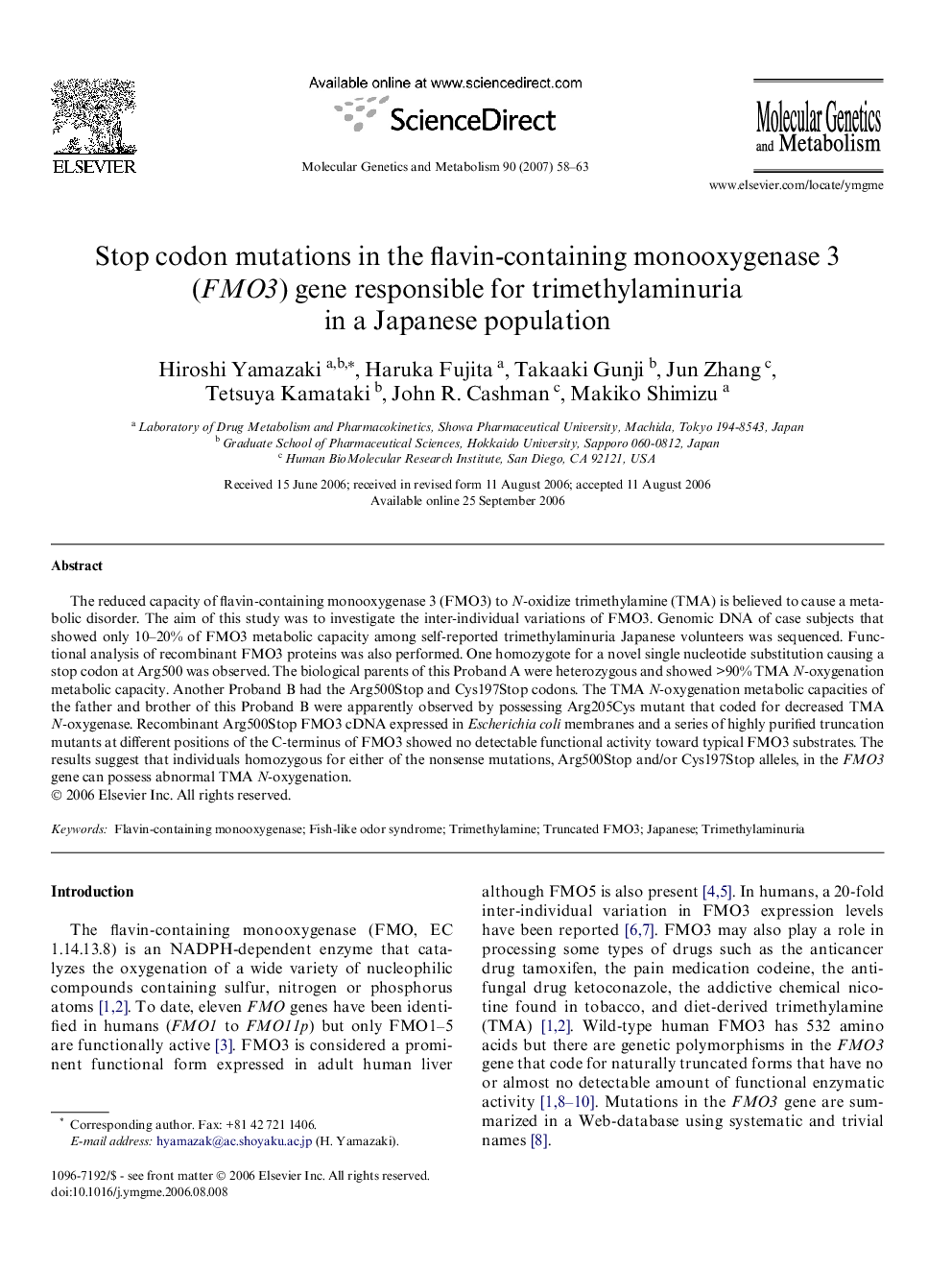| Article ID | Journal | Published Year | Pages | File Type |
|---|---|---|---|---|
| 2000270 | Molecular Genetics and Metabolism | 2007 | 6 Pages |
The reduced capacity of flavin-containing monooxygenase 3 (FMO3) to N-oxidize trimethylamine (TMA) is believed to cause a metabolic disorder. The aim of this study was to investigate the inter-individual variations of FMO3. Genomic DNA of case subjects that showed only 10–20% of FMO3 metabolic capacity among self-reported trimethylaminuria Japanese volunteers was sequenced. Functional analysis of recombinant FMO3 proteins was also performed. One homozygote for a novel single nucleotide substitution causing a stop codon at Arg500 was observed. The biological parents of this Proband A were heterozygous and showed >90% TMA N-oxygenation metabolic capacity. Another Proband B had the Arg500Stop and Cys197Stop codons. The TMA N-oxygenation metabolic capacities of the father and brother of this Proband B were apparently observed by possessing Arg205Cys mutant that coded for decreased TMA N-oxygenase. Recombinant Arg500Stop FMO3 cDNA expressed in Escherichia coli membranes and a series of highly purified truncation mutants at different positions of the C-terminus of FMO3 showed no detectable functional activity toward typical FMO3 substrates. The results suggest that individuals homozygous for either of the nonsense mutations, Arg500Stop and/or Cys197Stop alleles, in the FMO3 gene can possess abnormal TMA N-oxygenation.
